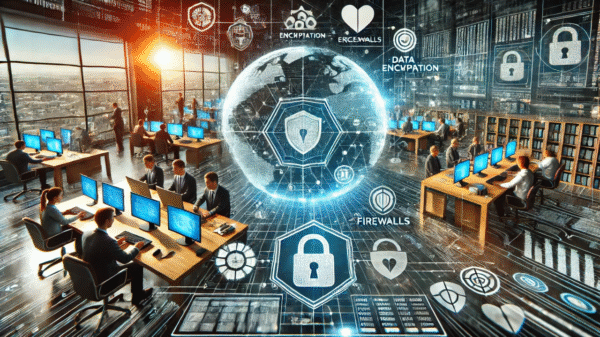Autonomous Systems: Revolutionizing Business Operations
What Are Autonomous Systems?
Autonomous systems are self-operating technologies that use artificial intelligence (AI), machine learning, and sensor data to perform tasks without human intervention. From self-driving vehicles to automated drones, these systems are being integrated into various industries to improve efficiency, reduce errors, and create innovative service delivery models.
The Role of AI in Autonomous Systems
AI is the backbone of autonomous systems, enabling them to analyze data, make decisions, and adapt to changing environments in real-time. By leveraging machine learning algorithms, these systems continually improve their performance, making them highly reliable and efficient. This capability is key to their growing adoption in business operations.
Autonomous Vehicles in Logistics
Self-driving vehicles are transforming logistics by automating transportation processes. Companies like Tesla and Waymo are pioneering autonomous trucks that can deliver goods more efficiently and cost-effectively. These vehicles optimize delivery routes, reduce fuel consumption, and minimize delays caused by human error.
Drones for Delivery and Surveillance
Autonomous drones are revolutionizing industries such as retail, agriculture, and security. Retailers like Amazon use drones for last-mile delivery, ensuring faster and more reliable service. In agriculture, drones monitor crops and optimize resource usage, while in security, they provide real-time surveillance, enhancing safety and efficiency.
Improving Efficiency in Manufacturing
Autonomous systems are enhancing manufacturing processes by automating production lines and quality control. Robots equipped with sensors and AI can perform repetitive tasks with precision, reducing waste and improving productivity. These systems also enable real-time monitoring, ensuring consistent product quality.
Reducing Human Error in Operations
One of the primary benefits of autonomous systems is their ability to reduce human error. In industries like healthcare, autonomous robots assist in surgeries, ensuring precision and minimizing risks. Similarly, in construction, autonomous equipment performs tasks with greater accuracy, enhancing safety and efficiency.
Autonomous Systems in Retail
Retailers are integrating autonomous systems to enhance customer experiences and streamline operations. Automated checkout systems, inventory management robots, and personalized shopping assistants are reshaping how consumers interact with stores. These innovations improve convenience and drive customer satisfaction.
The Role of Sensors in Autonomous Technology
Sensors are critical components of autonomous systems, enabling them to perceive and navigate their surroundings. From LiDAR in self-driving cars to thermal sensors in drones, these technologies provide the data needed for decision-making. Advanced sensors ensure that autonomous systems operate safely and effectively.
Enhancing Service Delivery Models
Autonomous systems are opening new possibilities for service delivery. In hospitality, robots are used for room service and cleaning, while in healthcare, autonomous systems deliver medications to patients. These innovations not only improve efficiency but also enhance the overall customer experience.
Autonomous Systems in Warehousing
Autonomous robots are transforming warehousing by automating tasks such as sorting, packing, and transporting goods. Companies like Amazon and Walmart utilize autonomous systems to optimize inventory management and reduce operational costs, ensuring faster and more accurate order fulfillment.
Addressing Challenges in Adoption
Despite their advantages, autonomous systems face challenges such as high implementation costs, regulatory hurdles, and public trust issues. Businesses must invest in robust infrastructure, comply with evolving regulations, and educate stakeholders about the benefits and safety of autonomous technologies.
Cybersecurity Concerns in Autonomous Systems
As autonomous systems rely heavily on data, they are vulnerable to cybersecurity threats. Ensuring the security of communication networks, data storage, and control systems is critical to maintaining the integrity and reliability of autonomous operations. Businesses must prioritize cybersecurity to safeguard their investments.
Environmental Impact of Autonomous Systems
Autonomous systems contribute to sustainability by optimizing resource usage and reducing emissions. For example, self-driving electric vehicles lower fuel consumption, while drones minimize the need for extensive transportation infrastructure. These advancements align with global efforts to reduce the environmental impact of industrial operations.
The Future of Autonomous Systems in Business
The future of autonomous systems lies in their integration with advanced technologies like 5G, IoT, and blockchain. These innovations will enhance connectivity, data processing, and operational efficiency, enabling autonomous systems to tackle more complex tasks and expand into new domains.
Conclusion: A New Era of Automation
Autonomous systems are revolutionizing business operations across industries, offering improved efficiency, reduced errors, and innovative service delivery models. From self-driving vehicles to drones and robotic assistants, these technologies are paving the way for a more automated and sustainable future. As businesses continue to adopt and refine autonomous systems, they will unlock new opportunities for growth, innovation, and competitive advantage.
































